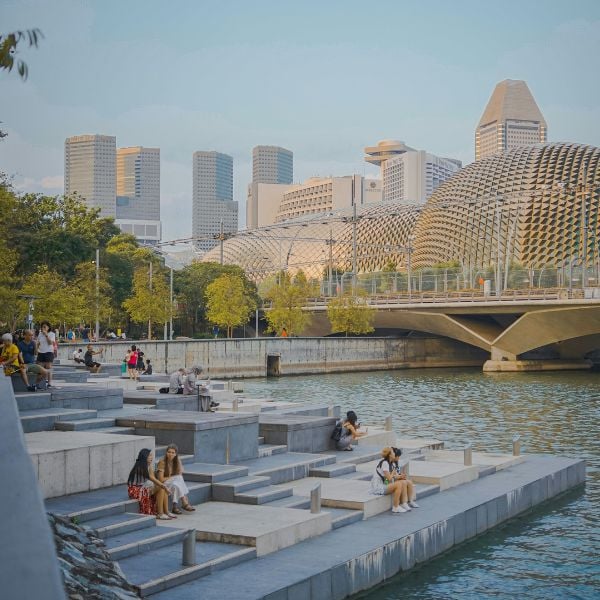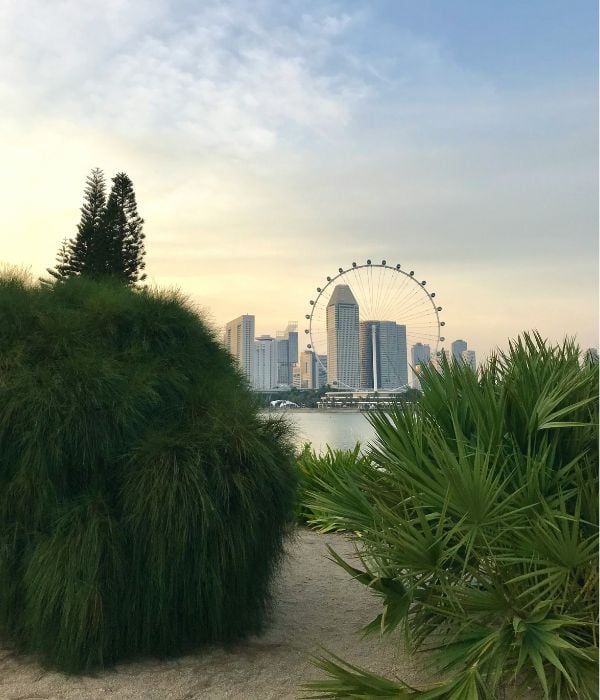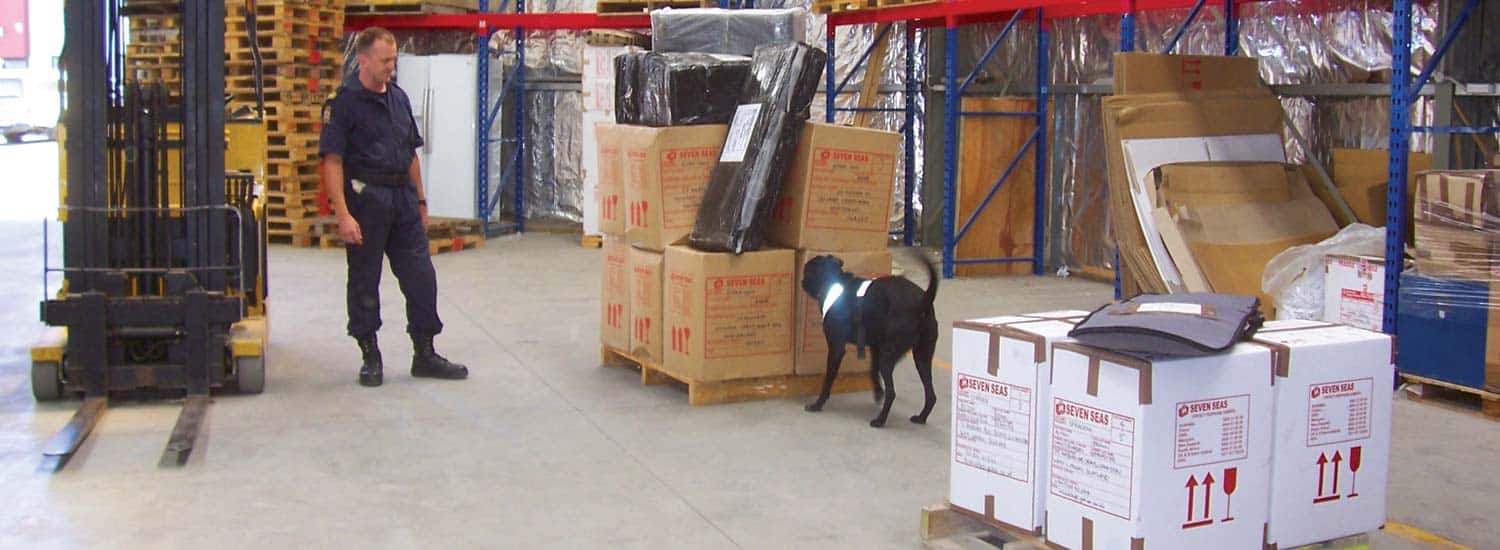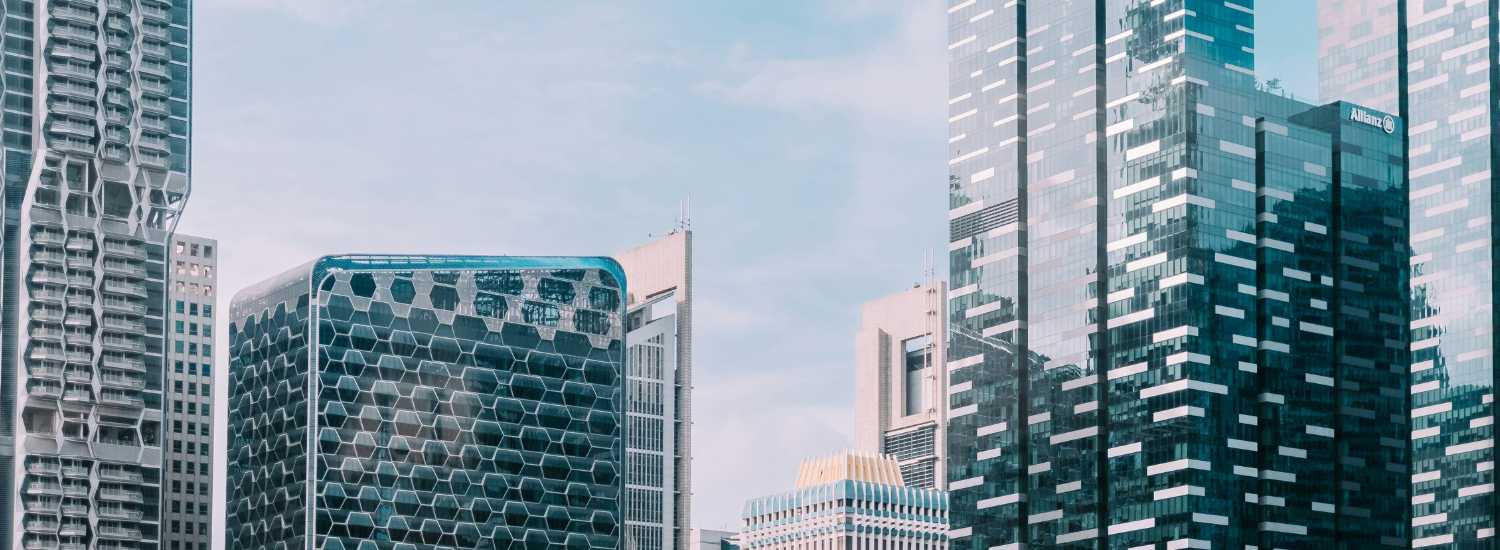Before packing, check this list of items prohibited from entering a particular country or region.
Key takeaways
- Singapore is one of the world's most expensive cities because its reputation as a financial centre attracts wealthy expats, and the property is limited and costly.
- High taxes and strict government regulations to discourage drinking means alcohol is expensive in Singapore.
- Marina Bay, Orchard Road, and the Central Business District (CBD) are the most expensive areas in Singapore to rent property, while the neighbourhoods of Jurong and Woodlands are the cheapest.

Why is Singapore so expensive?
Singapore is so expensive because the city imports most everyday items, land is limited, causing sky-high property prices, and it's a global financial hub, making it a beacon for wealthy investors.
Below, we delve into these factors driving Singapore's reputation as one of the most expensive cities in the world:
- The city-state's limited land area and high population have led to a high demand for housing, significantly pushing up property and rental prices.
- Due to its size and location, Singapore imports most of its goods, including fuel and over 90% of its food, leading to higher costs for everyday items. Exports are limited to high-value goods such as electronics, pharmaceuticals and financial services.
- Its status as a financial hub, partly due to favourable business tax incentives, and as a desirable location for expats inflates prices as wealthy investors compete for the best accommodation and premium services.
- Strict government policies to reduce congestion, such as vehicle ownership regulations, make buying a car very expensive for both expats and locals.
High-quality infrastructure, excellent healthcare, and a robust education system contribute to higher living standards but come at a premium. Despite the expense, moving to Singapore remains attractive to many due to its safe streets, tropical climate, cleanliness and plentiful job opportunities, particularly in thriving sectors like finance and technology.
![]()
What currency does Singapore use?
The currency Singapore uses is the Singapore Dollar, often abbreviated to SGD or S$ and referred to as the "Sing" by locals. Known for its stability, the SGD is one of the most widely traded currencies in the world, reflecting Singapore's strong economic standing. The Monetary Authority of Singapore (MAS) manages the currency and implements policies that help maintain its value.
ATMs are available across the island. Most establishments accept cash and card payments, but credit and debit cards are the most widely used. Digital payments such as PayNow and mobile wallet services like GrabPay and Apple Pay are increasingly popular alternatives. Foreign exchange services are available at most banks, currency exchange counters, and Changi Airport.
Thanks to a Currency Interchangeability Agreement, the SGD and the Brunei Dollar (BND) can be used interchangeably in Singapore and Brunei without conversion fees or changes in value. Other neighbouring countries, such as parts of Malaysia and Indonesia close to the Singapore border, accept SGD but do not recognise it as legal tender.
Singapore currency quick facts
| Name | Singapore Dollar |
| Nicknames | Sing |
| Symbol | S$ |
| Minor unit symbol | S¢ |
| Code | SGD |
| Coins | S¢1, S¢5, S¢10, S¢20, S¢50, S$1 |
| Notes | S$2, S$5, S$10, S$20, S$25, S$50, S$100, S$500, S$1,000, S$10,000 |
Why is alcohol so expensive in Singapore?*
Alcohol is so expensive in Singapore due to high taxes and government regulations to discourage excessive drinking. Hefty excise duties on alcohol significantly increase the cost of locally produced and imported beverages. For example, the excise duty on beer is S$60 (around US$44.15) per litre of alcohol content. At the same time, spirits face an even steeper levy at S$88 (around US$64.75).
*prices accurate as of 2025
Average cost of living in Singapore*
The average cost of living in Singapore is generally high compared to many global cities. However, it varies depending on your lifestyle, family size and accommodation choices.
According to crowd-sourced online database Numbeo, a single person in Singapore needs at least S$4,040 (around US$2,973) per month for essential requirements, broken down as follows:
- Rent for a 1-bed city centre apartment: S$3,637 (around US$2,676)
- Monthly transport pass: S$120 (around US$88)
- Utilities (electricity, gas, etc): S$214 (around US$157)
- Mobile phone and internet: S$69 (around US$51)
Further expenses may include dining out, entertainment, clothing, gym memberships and so on, adding on several hundred dollars a month, depending on spending habits and hobbies. Due to Singapore's heavy reliance on imported food, groceries are particularly costly at S$534 (around US$393).
Healthcare in Singapore is high-quality but can be expensive, particularly for non-permanent residents without public insurance. Permanent residents contribute 8-10.5% of their wages towards basic healthcare via the Central Provident Fund (CPF), which helps with hospital care and outpatient treatment costs.
For those who opt for private insurance, premiums rise steeply with age, especially if you're over 65. Typical monthly health insurance plans in Singapore by age are as follows:
- 25 year old: S$209 (around US$154)
- 45 year old: S$348 (around US$256)
- 75 year old: S$15,811 (around US$11,634)
*prices accurate as of 2025
Healthcare in Singapore is high-quality but can be expensive, particularly for non-permanent residents...

![]()
Types of property in Singapore
Types of property in Singapore include subsidised public housing regulated by the HDB, Design, Build and Sell Scheme (DBSS) flats, executive condominiums, private condominiums, and landed property.
![]()
- Ranging in size from studio apartments to large executive flats.
- They can only be rented to Singaporeans or non-citizens with a valid work or study pass.
![]()
- A premium HDB apartment built by private developers with extras like balconies and study areas.
- There are 13 DBSS projects, but no more are in production.
![]()
- Designed for those earning above the income limit for HDB flats yet cannot afford a private property.
- Can be sold to Singaporeans and PRs after 5 years and to overseas nationals after 10 years.
![]()
- These condos are privately owned from the start.
- They typically include amenities like gated security, gyms, swimming pools and sports facilities.
![]()
- The term "landed property" means you own the land the property stands on.
- Despite their high maintenance and property tax, these dwellings boast huge layouts and extra privacy.
Average rent in Singapore*
Rental costs in Singapore depend on how central your location is and the type of accommodation you choose. Highly sought-after areas near prominent workplaces, such as Marina Bay, Orchard Road and the Central Business District (CBD), come with steep rental costs due to their convenience and proximity to amenities. A one-bedroom apartment in these locations typically ranges from S$2,500 to 4,000 (around US$1,840 to 2,943) per month.
In contrast, suburban neighbourhoods like Jurong and Woodlands offer more affordable options. Rental prices vary between S$1,500 and 2,500 (around US$1,104 to 1,840), depending on local amenities and access to public transport.
For families, renting a three-bedroom home can be significantly more expensive, especially in central areas. A three-bedroom city centre apartment averages S$7,260 (around US$5,342), while prices are lower outside the centre at around S$5,142 (around US$3,784).
For those on lower incomes, government-subsidised Housing Development Board (HDB) flats (apartments) offer cheaper rental options, with prices starting as low as S$1,500 (around US$1,104). However, high demand and limited availability can make securing a flat challenging.
How much is a house in Singapore?*
A house in Singapore can cost from S$850,000 (around US$625,446) up to S$61 million (around US$45 million).
Buying a home in Singapore is a significant investment due to high property prices and fierce competition. Prices vary dramatically for private homes, including condominiums and landed houses, depending on location and type. In prime central areas like Orchard or Marina Bay, condominiums start at around S$850,000 (around US$625,446) for a small unit, with more luxurious properties reaching up to S$3.9 million (around US$2.8 million). Outside the city centre, private condos cost from S$663,000 to 2.2 million (around US$487,848 to 1.61 million).
According to Singapore-based personal finance platform Dollars and Sense, landed properties, such as terrace houses and semi-detached and detached homes, vary significantly in price depending on location and tenure. In 2023, the median price for landed properties was S$4.34 million (around US$3.2 million), with prices starting as low as S$505,000 (around US$371,589) for leasehold properties and reaching as high as S$61 million (around US$45 million), for larger freehold homes.
Government-subsidised HDB flats, where 77.8% of Singaporeans live, provide a more affordable option. Depending on the location and flat size, prices for resale flats average roughly S$575,000 (around US$423,096). However, they are only available to Singapore natives (new and resale flats) and permanent residents (resale only).
*prices accurate as of 2025












